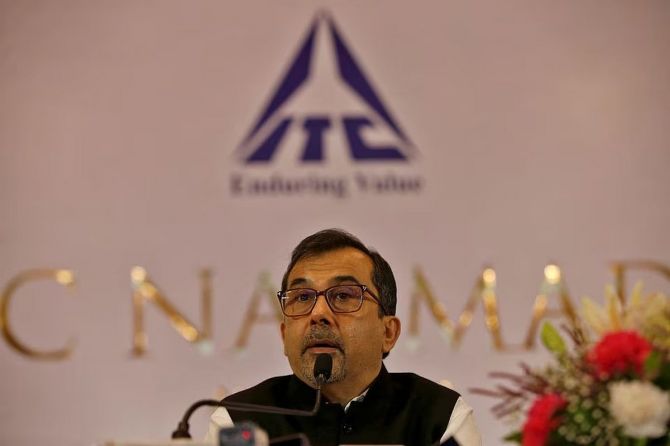Sanjiv Puri, chairman and managing director of ITC, is looking to expand the conglomerate’s play outside India by taking “strategic positions” in markets close to home in the non-cigarette fast-moving consumer goods (FMCG) and hospitality businesses.

In a recent conversation with Business Standard, Puri revealed that ITC is setting sights beyond India’s borders.
“We already export to 100-odd countries. We want to scale that up and take some strategic positions in markets close to us,” he said.
When it comes to FMCG, this could mean acquiring assets or setting up a manufacturing base.
“We might invest or acquire something in a proximal market where we feel there is an opportunity,” Puri explained.
He further said: “In a way, we have already started manufacturing some confectionery and biscuits in Nepal under our subsidiary.”
In the hospitality sector, ITC’s first foreign venture in the hotel space, in the heart of Colombo, “should start next quarter”, he informed.
The mixed-use development, which includes a luxury hotel and a super-premium residential apartment complex, is situated on 5.86 acres of prime sea-facing land.
As of March 31, 2023, ITC's investment in WelcomHotels Lanka (Private) Limited, the company set up to develop the project, stood at Rs 2,775 crore, according to the company’s 2023 annual report.
However, Puri said the company would largely rely on an asset-right strategy, entering new markets through management contracts.
This approach would be used in markets that are "not too far off, where there is growth and where the portfolio of ITC can stand out."
Potential areas for expansion could include neighbouring markets and West Asia.
The asset-right strategy, which Puri introduced in 2017 before he was appointed chairman in May 2019, involves a balance between owning properties and managing them through contracts.
Puri believes that a combination of both — some investment and more management contracts — is necessary to spur growth.
The hospitality business has quite a runway ahead with the momentum from the asset-right model.
ITC’s presentation to institutional investors and financial analysts in December mentioned that the target was to reach 200 hotels with 18,000 keys over five years, with two-thirds in the managed portfolio. ITC’s current portfolio comprises 130 hotels with around 12,000 keys.
Would ITC venture into Ayodhya, the new tourism hotspot?
Puri replied: “We are in the process of active lookout; there are certain specific opportunities that we are looking at.”
Puri completes five years as chairman of ITC in about three months and scaling up each business significantly is a focus area.
“In the areas that we operate, there are a lot of opportunities in India,” he said.
FMCG has huge headroom for growth and Puri would like to see it “double and then double again”; in agriculture, the focus is on building the value-added piece; in paperboards, a new manufacturing site along the lines of Bhadrachalam is on the cards and the premium moulded fibre products manufacturing plant in Madhya Pradesh is expected to be commissioned by the end of the financial year; for ITC Infotech, the goal is to scale it up to $1 billion (FY23 revenue was at Rs 3,321 crore).
Food-tech, ITC MAARS (a phygital ecosystem providing agri-solutions to farmers) are the new cogs in the growth wheel.
Food-tech that sits well with ITC’s synergies -- culinary expertise from hotels, combined with capabilities in foods -- is growing legs.
From Bengaluru, it has expanded into Chennai and will progressively move to other cities.
As far as ITC MAARS is concerned, Puri expects it to become value accretive “sooner than later”.
Recently, ITC’s performance was endorsed by its single largest shareholder, British American Tobacco (BAT), which holds a 29.03 per cent stake.
BAT chief executive, Tadeo Marroco, during a post-results investor call, said that it was very supportive of its shareholding in ITC.
“It's a fantastic company, well run, well managed, a very fast growing company in a very fast growing market with the most populous country in the world.”
Marroco’s comments were in response to a question on BAT’s statement in the earnings release on monetising some of its shareholding in ITC.
BAT intends to have a minimum of 25 per cent shareholding, which is required to keep its veto rights in ITC.












 © 2025
© 2025